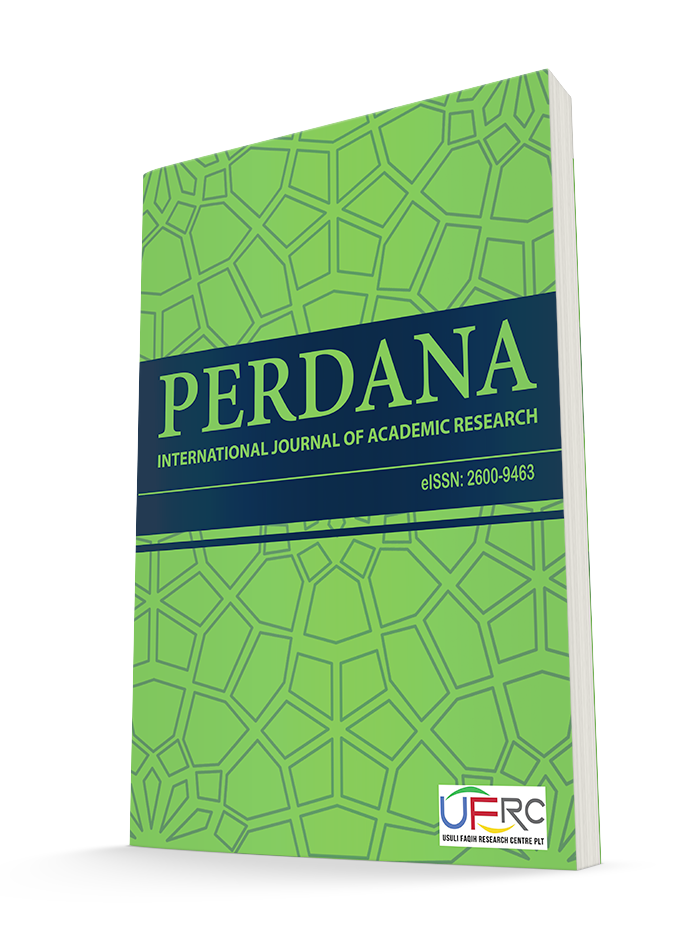Article

An Investigation Of The Lexical Difficulty In Narrating The Sexual Abuse Experience By The Underage Occupants Of A Selected Shelter Home
Perdana: International Journal of Academic Research vol. 6 no. 2 (Page 92-100)View in JFatwa
Seriaznita Mat Said (Author)
Raj Ali Zahid Elley (Author)
Norsalina Salim (Author)
Sarimah Shamsudin (Author)
Adzlin Nawi (Author)
Abstract
The research has been inspired by the ratifying of Sexual Offences against Children Bill 2017 by Parliament on 4 April 2017. The bill has been formulated to protect anyone under 18 years of age from sexual abuse, and addresses among others child pornography, sexual harassment and grooming. With the introduction of the bill, it is foreseen that child sexual abuse cases that are on trial could be resolved within a year. This study is anchored in the belief that language and law cannot be separated and due to the grueling court procedure, language is ubiquitous when the victim is pressed to construct from memory the abusive experience. This is the reason personal event narratives – stories that should include relevant details and some evaluative statements that relate to what makes the story worth sharing – are the focus of the present research. Therefore, the objective of this research is to identify the underage sexual victims’ lexical problems in producing cohesive and coherent personal event narratives of the abusive experience. The research participants are sexual abuse victims between 12 and 17 years of age who are seeking shelter at a government-initiated welfare home. In depth interviews had been employed and the findings analysed using thematic analysis. It can be surmised from the findings that all victims have indicated no serious lexical challenges but the victims’ age and psychology are detrimental factors to the six aspects of personal event narratives, particularly the informativeness criterion.
References
Azzopardi, Corry, Rachel Eirich, Christina L Rash, and Sarah Macdonald. 2019. “Child Abuse & Neglect A Meta-Analysis of the Prevalence of Child Sexual Abuse Disclosure in Forensic Settings.” 93(November 2018): 291–304.
Byrne, C. A., Hyman, I. R. A. E., & Scott, K. L. 2001. “Comparisons of Memories for Traumatic Events and Other Experiences.” Applied Cognitive Psychology 15: 119–33.
Cassidy, J. 2008. Handbook of Attachment. Theory, Research and Clinical Applications. 2nd ed. New York: Guilford Press.
Foa, E. B., Molnar, C., & Cashman, L. 1995. “Change in Rape Narratives during Exposure Therapy for Posttraumatic Stress Disorder.” Journal of Traumatic Stress 8: 675–90.
Garnham, Alan, Simon Garrod, and Anthony Sanford. 2006. “Observations on the Past and Future of Psycholinguistics.” In Handbook of Psycholinguistics, ed. Morton A. Traxler, Matthew J., Gernsbacher. Academic Press, 1–18.
Grice, H. Paul. 1975. “Logic and Conversation.” In Speech Acts, ed. Cole; P.; and J.L.; Morgan. New York: Academic Press, 41–58.
Halligan, S. L., Clark, D. M., & Ehlers, A. 2002. “Cognitive Processing, Memory, and the Development of PTSD Symptoms: Two Experimental Analogue Studies.” Journal of Behavior Therapy and Experimental Psychiatry 33: 73–89.
Harley, Trevor. 2001. The Psychology of Language from Data to Theory (2nd Edition). 2nd ed. Hove and New York: Psychology Press.
Hopper, J. W., & van der Kolk, B. A. 2001. “Retrieving, Assessing, and Classifying Traumatic Memories.” Journal of Aggression, Maltreatment&Trauma 4(2): 33–71.
Miragoli, Sarah, Elena Camisasca, and Paola Di Blasio. 2017. “Narrative Fragmentation in Child Sexual Abuse: The Role of Age and Post-Traumatic Stress Disorder.” Child Abuse and Neglect 73(March): 106–14. http://dx.doi.org/10.1016/j.chiabu.2017.09.028.
Snow, P. C., M. B. Powell, and D. D. Sanger. 2012. “Clinical Forum Language and Communication Disorders in Adolescents Oral Language Competence, Young Speakers, and the Law.” Language, Speech, and Hearing Services in Schools 43(October): 496–506.
Teoh, Yee San, and Michael E. Lamb. 2010. “Preparing Children for Investigative Interviews: Rapport-Building, Instruction, and Evaluation.” Applied Developmental Science 14(3): 154–63.
Vaismoradi, Mojtaba, Jacqueline Jones, Hannele and Turunen, and Sherrill Snelgrove. 2016. “Theme Development in Qualitative Content Analysis and Thematic Analysis.” Journal of Nursing Education and Practice 6(5). http://www.sciedupress.com/journal/index.php/jnep/article/view/8391.
Westby, Carol, and Elizabeth Martinez. 2017. “Assessing Personal Event Narratives.” Word of Mouth 28(4): 13–16.
URL
Back View in JFatwa

